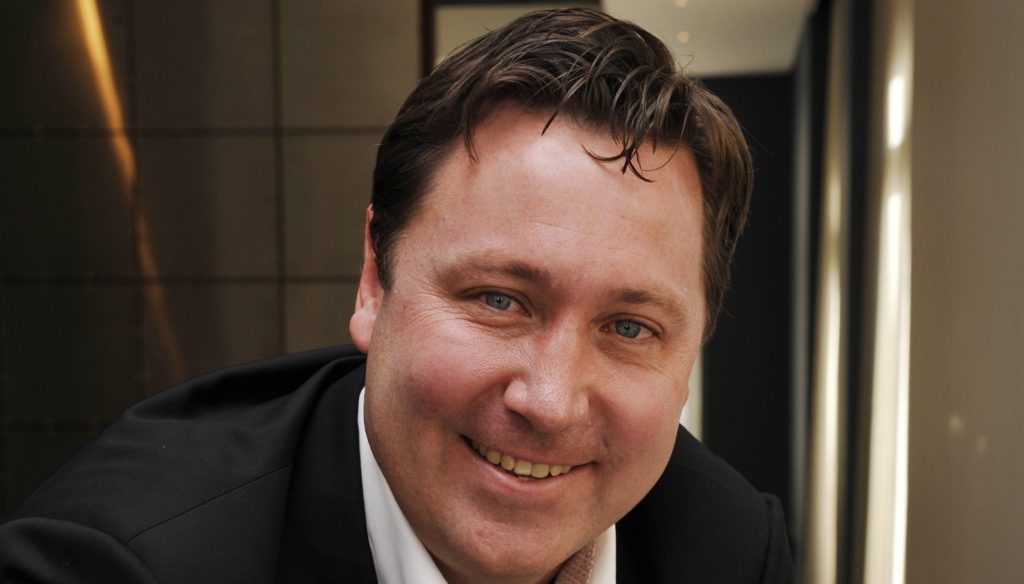AI chat is no longer just about faster answers or conversational tone. Search.com, a division of Public Good, has launched a generative AI search…
Online lender Rainfin sells majority stake in business to bankroll new R1bn fund

SA online lending platform RainFin has effectively sold its business to its current BEE shareholders, the LeBashe Investment Group.
The deal, announced last week on the lender’s blog, will enable Rainfin to finance a new R1-billion fund targeting small businesses.
Terms of the deal — which resulted in the BEE investors having increased their present stake in Rainfin from 30% to 75% — were not disclosed.
Founded in 2012 by CEO Sean Emery (pictured above), and COO Hannes van der Merwe, Rainfin — which in April announced a partnership with Johannesburg-based alternate exchange 4AX — also announced that it had established the RainFin SME Fund which the company said will “focus on providing services to funds that are SME focused”.
Read more: SA marketplace lender Rainfin sells corporate debt offering to 4AX exchange
In a statement, LeBashe Investment Group executive director Warren Wheatley said the firm along with Rainfin had over the last year “collectively identified opportunities” to increase the capital available for small and medium sized business in South Africa, and beyond.
Read more: RainFin concludes 30% equity transaction with LeBashe
“As an investor in RainFin, we have gotten to know the RainFin team, their ethos and confirmed the excellent strategic fit between RainFin’s unique value proposition and potential to scale, and LeBashe’s vision to build a pre-eminent black owned financial services business, which is accessible to all,” Wheatley said in the statement.
Rainfin’s sale of majority stake will help finance a new R1-billion fund to target small businesses
Emery said as part of LeBashe’s initial investment last year, RainFin had “successfully piloted” a R40-million fund in its small business credit marketplace division, Texmex.
He added that the company had identified opportunities to scale the fund with additional capital for various target segments of small businesses.
“In order to attract more capital into our SME funds we need to increase our balance sheet to be at least 20% (R200-million – Ed) of the size of the funds we want to build,” Emery explained.
Fund to be sector agnostic
Speaking to Ventureburn in a phone call last Thursday (31 May), RainFin chief commercial officer Altesh Baijoo said the fund will be “sector agnostic”, unless there are specific restrictions that the investors into the fund place on the fund.
“We do have a focus in terms of job creation and impact, and that’s the reason we’ve established the fund itself,” added Baijoo.
He said the company is looking to lend out loans of an average of about R1-million each.
“Ultimately what you’re looking at is, there isn’t a set number of businesses that we are targeting to fund, it’s risk dependent, and we are looking at an average loan size of a R1-million,” he added.
When asked to comment on how the fund will compare to other similar funds, he said there was “uniqueness” in RainFin’s risk assessment process.
“I think ultimately the combination of the fund structure, its risk assessment, what it will enable us to do is to price SME risk more effectively, and also make funding more affordable and acceptable to SMEs,” he explained.
‘R40-million pilot performed well’
Baijoo declined to comment on the performance of the R40-million pilot — which was conducted with LeBashe — as that is information RainFin “generally discloses to investors under an NDA (non-disclosure-agreement)”.
“I can say to you that the average loan size on that fund was about R495 000, and again it was sector agnostic, and we funded a couple of business across different sectors. And I can say to you that the fund has performed well without going into the details in terms of the actual stuff in the fund itself, we prefer to have that conversation under NDA,” he said.
‘Founders 25% stake to ensure continuity’
Baijoo pointed out that the decision by the founders to do a “partial exit” rather than fully exit the business will ensure continuity as the credit marketplace scales.
“The founding team has spent a lot of time and effort, as well as their own investments in terms of building the business to where it is.
“So, I think that to exit at this point and time when we are at the cusp of scaling it doesn’t make economic sense for the founding team. I think it made sense for them to sell some of their shares, but not all of it,” he added.
The main question now is given that the R1-billion SME fund will allow institutional investors to loan to SMEs, does this then mean that Rainfin is leaving its initial peer-to-peer approach to crowdfunding?
Ventureburn posed the question to Emery who had not responded by the time of publication.
*Correction: In the initial version of this story we had it that the R40-million pilot of the RainFin SME Fund was done with Barclays Africa Group Limited, when in fact it was carried out with Lebashe. Ventureburn regrets the error.
Featured image: RainFin founder and CEO Sean Emery (Supplied)


